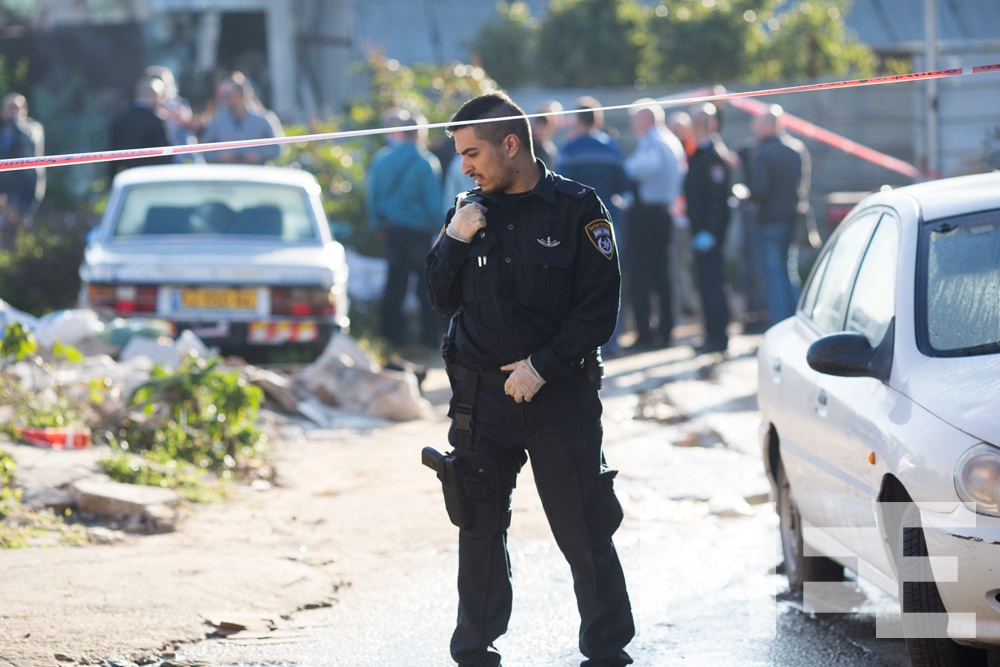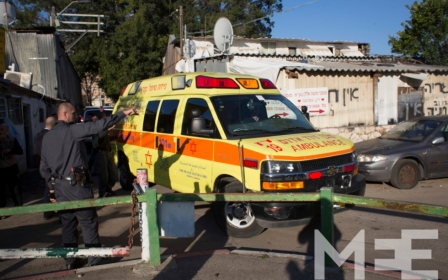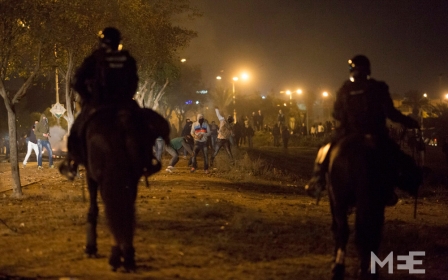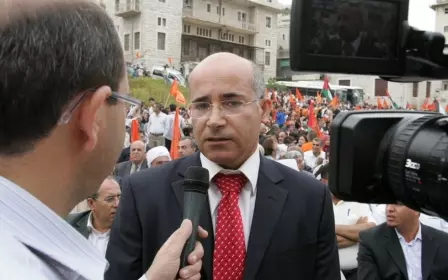Netanyahu condemns Hamas after it praises ‘lone wolf’ attack

In the wake of a mass stabbing attack in Tel Aviv on Wednesday morning, both Israeli and Palestinian figures have been quick to comment on continuing violence, with a sharp divide between the narratives of both parties.
Israeli politicians, who are currently locked in campaigning ahead of a general election this spring, vocally condemned the attacks and what they regarded as their cause. Right-wing politicians, including Prime Minister Benjamin Netanyahu, placed the blame squarely on the leadership of the Palestinian Authority, which he claimed incites terrorism and aims to undermine Israel.
“The terrorist attack in Tel Aviv is the direct result of the poisonous incitement being disseminated by the Palestinian Authority against the Jews and their state. This same terrorism is trying to attack us in Paris, Brussels and everywhere,” the prime minister said in a statement.
“It is Hamas - Abu Mazen’s partners in a unity government - that hastened to commend this attack. This is the same Hamas that announced it will sue Israel at the International Criminal Court in The Hague. Abu Mazen is responsible for both the incitement and the dangerous move at the ICC in the Hague,” Netanyahu continued.
Hamas spokesperson Izzat al-Rishq was among the first to applaud the attack on Twitter. “The stabbing attack by a freedom fighter against the Zionists in Tel Aviv is a heroic and brave operation,” he said in a statement. “It is a natural response to the crimes of the occupation and its terrorism against our people.”
Palestinian Ma’an News Agency reported that the Popular Resistance Committees, the Palestinian protest movement, warned that similar attacks would continue, and stated that such incidents were the “natural reaction to all Israeli crimes against Palestinians, their lands and religious sites."
As of late Wednesday, the Palestinian Authority had not made a statement and representatives did not respond to Middle East Eye’s request for comment.
Spike in unrest
Wednesday’s attack occurred after mass protests were held by Palestinian citizens of Israel, after a man was shot dead by police in Rahat, in the southern Negev, last week.
Although the stabbing is the first serious incidence of violence in more than a month, it follows a spate of attacks that took place during the autumn, in which nine Israelis and one foreign tourist were killed. In one of the attacks, four rabbis and a Druze police officer were hacked to death in a Jerusalem synagogue.
During the same period, more than a dozen Palestinians, some of whom were suspects in the attacks, were killed by Israeli forces in the West Bank and Israel.
Although unrest in recent months has been largely centred on Israel itself and Jerusalem, the suspect in Wednesday’s incident was a Palestinian from the West Bank. Police spokesperson Micky Rosenfeld identified him shortly after the attack as Hamza Matrouk, a 23-year-old from Tulkarem in the north of the occupied territory. Matrouk, he said, was working in Israel illegally and did not have permission to cross out of the West Bank, although Rosenfeld did not clarify where he was employed in Israeli territory or how he left the West Bank.
“We know that he left Tulkarem this morning. On the bus, he stabbed all the passengers he could. He was shot in the leg while attempting to flee, was apprehended by officers and arrested,” Rosenfeld said, adding that police were interrogating the suspected attacker.
In an interview with Ma’an News Agency, men who said they were friends of Matrouk said that he was not involved in politics. “Last night, Hamza and I hung out with friends in the camp until 11pm and we had fun,” he said. “He was laughing and kidding and I know very well that he isn’t affiliated to any faction.”
If correct, Wednesday’s stabbing could be another “lone wolf” attack, carried out by individuals without the direction of political organisations or extensive planning. In October and November, these attacks proved to be the most widespread, with young men using their cars as weapons and stabbing seemingly random civilians or soldiers. Though November’s synagogue attack was apparently well-planned, and carried out by men affiliated with the Popular Front for the Liberation of Palestine, it is thought that they acted independently.
High alert
Since the series of killings, authorities have been on high alert against potential incidents. Following the attack on Wednesday, there was a heightened police presence in Tel Aviv.
“At the moment, there are extra police units in Tel Aviv to deal with any potential further threats,” Rosenfeld said. “We had no specific warning of a terrorist attack today.”
In the city, Wednesday’s stabbing will bring back memories of the second Intifada when public transport was a frequent target for bombings and stabbings, and more than 1,000 Israelis were killed in such attacks.
For Israeli security, the recent direction of violence presents new challenges. And in the run up to a fierce election battle, it also means new points for disagreement and attack among politicians.
“Those behind the Tel Aviv attack stand behind Rahat riots and Jerusalem attacks: Abu Mazen, Haniyeh, Raed Saleh, Haneen Zoabi, Ahmed Tibi and their partners. It’s all part of the same process of undermining Israel’s right to exist as a Jewish state,” Likud’s Avigdor Lieberman said, taking aim at Palestinian leaders in both the occupied territories and Israel itself, and highlighting the unrest in the Negev city of Rahat that followed the killing of two men by police this week.
“We will continue to take strong action against the terrorism that has been trying to attack us since the founding of the state, and we will see to it that it does not achieve its goal,” Netanyahu stated.
New MEE newsletter: Jerusalem Dispatch
Sign up to get the latest insights and analysis on Israel-Palestine, alongside Turkey Unpacked and other MEE newsletters
Middle East Eye delivers independent and unrivalled coverage and analysis of the Middle East, North Africa and beyond. To learn more about republishing this content and the associated fees, please fill out this form. More about MEE can be found here.




